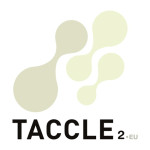Lesson plan from Italy…
Students research the history of bikes and their shapes and compile a list of the component parts with pictures. These could be published using a photo sharing tool such as Flickr.
This activity could be combined with a physics lesson in which students verify that if the bike is stationary it is not stable, while it remains stable if it moves forward and you are pedalling .
Other possibilities are –
- Physics: mechanics (statics, kinematics, dynamics) and thermodynamics
- Mathematics: relation between sizes which are directly or inversely proportion , Cartesian diagrams, set of real numbers.
- Biology: ideal food for a healthy bike ride , metabolism and digestion,
- Chemistry: energetic content of food, energetic transformations (dynamo and batteries), Eco-friendly mobility.
How to do it – description of activities
The working groups will face the following thematics
– history of bikes (transformation of bikes during the years), list of the bike events which occur on the territory, collection and cataloguing of images;
– static balance (forces and movements);
– motion kinematics (space, time, speed);
– dynamics (friction, brakes, pneumatics, racing or riding handlebars, gears , ecc.);
– research of the most suitable food to carry out an enjoyable bike ride, examination of the energetic content of food and their assimilation;
– energetic transformation of the dynamo and battery , eco-friendly motion and pollution.
Each group relates to the others on the activity carried out with the use of electronic tools. All the material produced, conveniently organized ,is loaded in Moodle (platform FAD) to be disseminated on web.
Tools
Internet, fastone (image visualization), slideshare (presentations), vlc (visualization of videos), office, autocad, wikipedia, moodle, www.openrunner.com, www.mapmyrun.com, google maps, foursquare, twitter
This post is also available in: Romanian





 English
English Nederlands
Nederlands Deutsch
Deutsch Italiano
Italiano Español
Español Português
Português Română
Română Cymraeg
Cymraeg
This activity is extremely useful to develop critical thinking, problem solving and collaborative learning. Since I teach physics to 3rd year students, I would focus on the following topics: static balance, motion kinematics and dynamics. For example circular motion can be introduced through a video of the wheel tracking coloured spots placed on the rim, or the cycloid could be generated using a time exposure photograph of a light fixed to the wheel. This would have to be done in concert with the mathemtics teacher. The groups can share their results via slideshare for presentations, flikr for photographs and internet for the research.